Android 14: new features and everything you need to know
Android 14 is now here!
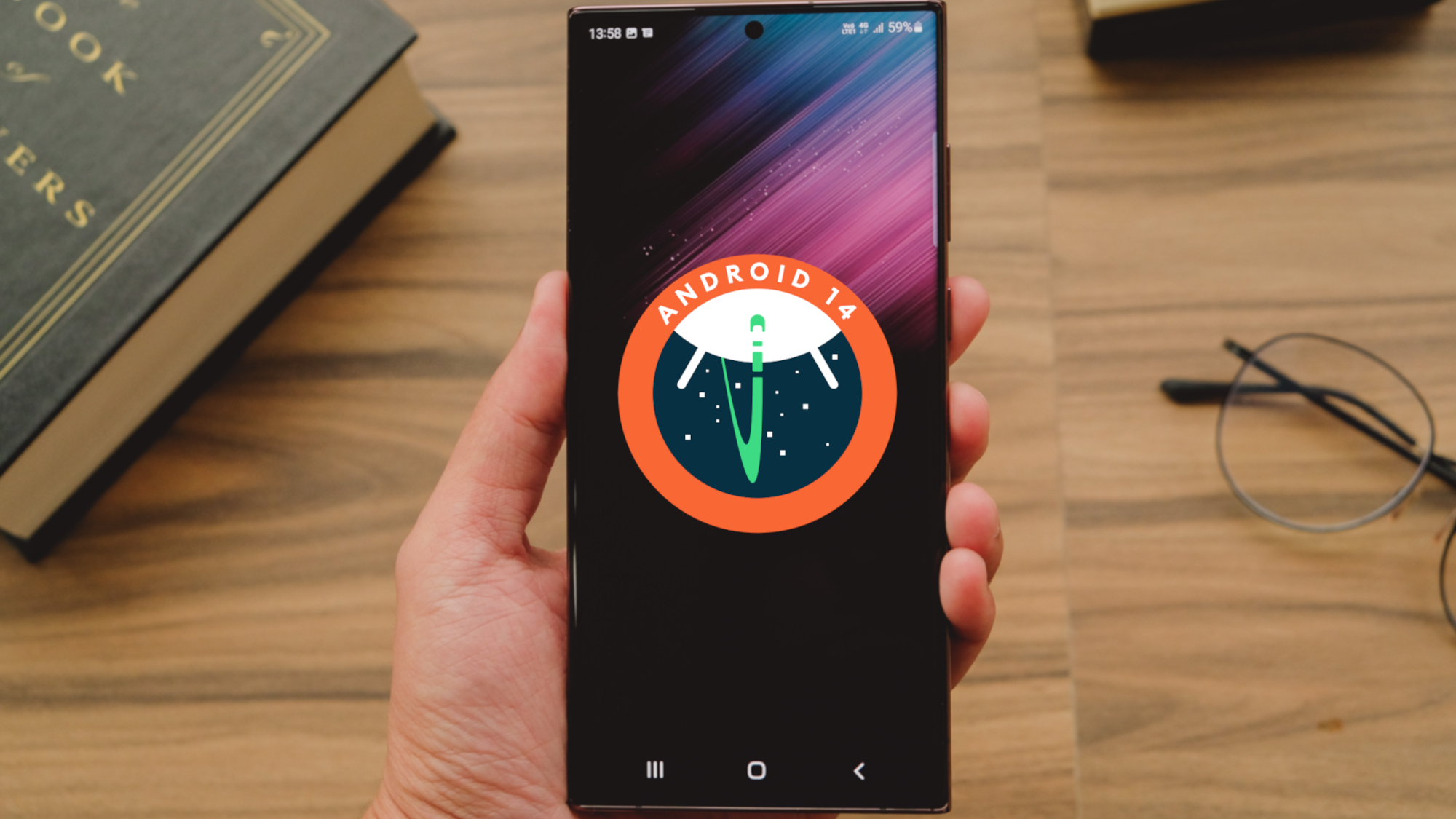
Android 14 – or Android Upside Down Cake as it was codenamed – is the latest version of Android – at least until Android 15 launches, probably in late 2024. For now though, this is the version you’ll want if you’re using an Android phone.
However, while the Android 14 update first started rolling out in October, it’s still not available to every phone yet at the time of writing, with a lot of Samsung phones still yet to get it and some manufacturers not yet bringing it to any handsets.
You’ll find more information on which phones it is available for below, along with a look at all the changes, updates, improvements, and new features that Android 14 will bring to your phone.
Cut to the chase
- What is it? The latest version of Android
- When is it out? It launched on October 4
- How much does it cost? It's a free upgrade
- Which phones support it? Most Pixels and select phones from other brands
Android 14 release date
Android 14 was announced by Google on February 8, 2023, and the first Developer Preview launched on the same day. The final release was unveiled on October 4, alongside the Pixel 8 and Pixel 8 Pro, and it's now available to select handsets.
Android 14 supported phones
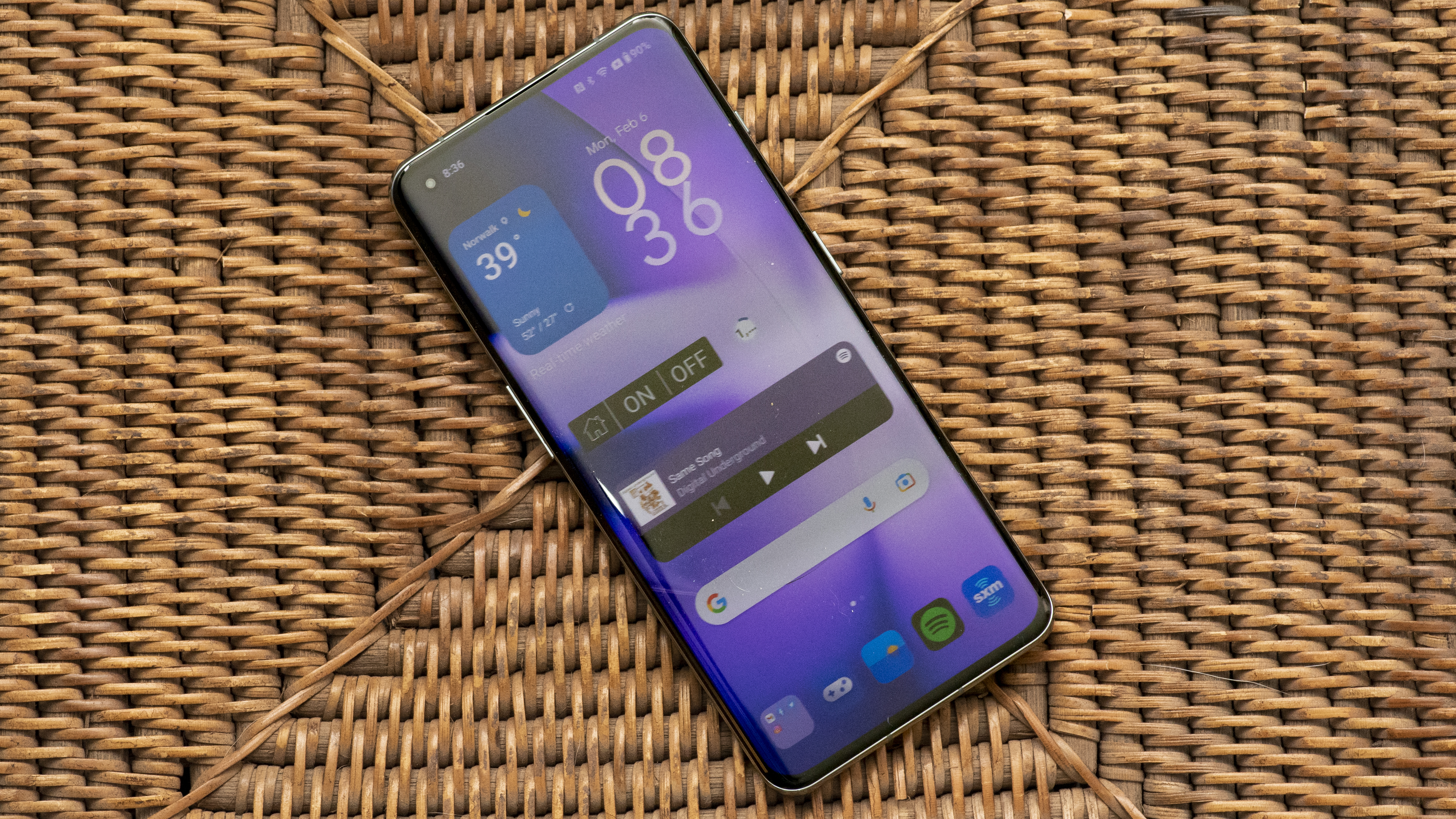
If you’ve used Android for a while then you’ll know it isn’t like iOS, where every phone made in the last five years or so gets the new version on day one. With Android, support is a lot more volatile, and many phones are left waiting months to receive their tailored update.
That said, if you have a recent Google Pixel phone then you should already have the update. Specifically, the Pixel 7 series, Pixel 6 series (including Pixel 6a), Pixel 5 series, and Pixel 4a 5G all support Android 14, and should have received an over the air (OTA) update to it. The Pixel 8 and Pixel 8 Pro meanwhile ship with Android 14 out of the box.
Beyond that, the Samsung Galaxy S23 series also now has access to Android 14, as does the Samsung Galaxy Z Fold 5 and Samsung Galaxy Z Flip 5, and Samsung has laid out a roadmap for when other devices will get the update. Essentially though you can expect most recent S, Z, and A series handsets to get Android 14 by mid-December.
Get daily insight, inspiration and deals in your inbox
Sign up for breaking news, reviews, opinion, top tech deals, and more.
Other phones that should now have Android 14 include the OnePlus 11, Xiaomi 13, and Sony Xperia 1 V, likely among others. Note though that in some cases the roll out is gradual, so if you don’t have Android 14 on your device yet but think you should, it’s likely you will do soon.
Beyond these, most other phones that came out in the last year or so will get Android 14, and many phones that are a couple of years old will, too, as will some older handsets.
The exact timeline for when any of these phones will get Android 14 though varies, and it can sometimes take months for manufacturers to make their own tweaks to the software before rolling it out to devices.
Android 14 features
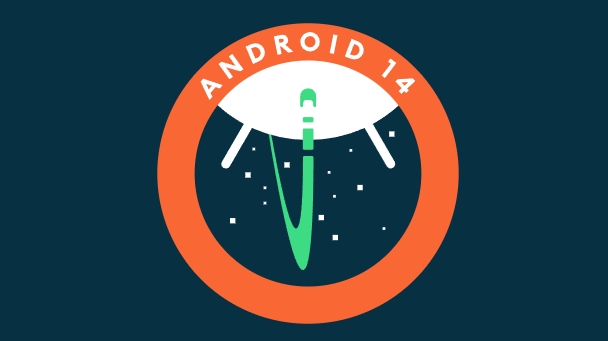
Android 14 is focused primarily on improving Google's generative AI support and refining a lot of what you'll find in Android 12 and 13. This means that, for example, the customizability features introduced in Android 12 and 13 with Material You are now supercharged with generative AI.
You'll be able to build your own wallpapers and even add new lock screens thanks to Android 14's enhanced customizability. With the new Pixel Fold and Pixel Tablet releases, Google has also done a lot of work to make apps work better on tablets which will bear out in Android 14.
You’ll find the most significant features below.
Enhanced lock screen customization
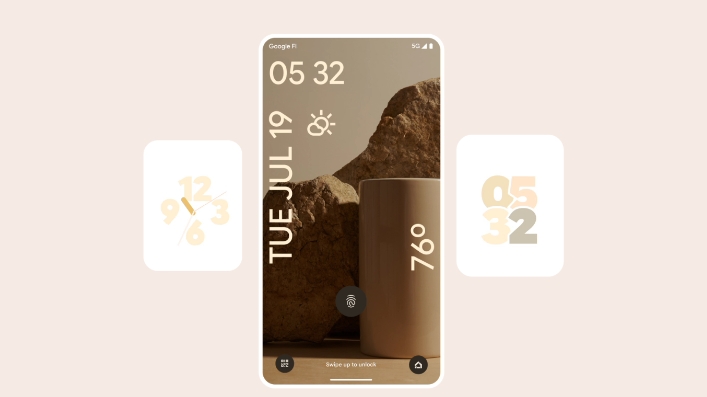
With Android 14, Google added lots of improvements to lock screen customization, allowing Pixel owners to choose the style, size, and colors of the clock on the lock screen.
You can also choose two shortcuts to display on the lock screen, from a selection including Google Wallet, do not disturb, mute, a QR code scanner, device controls (for smart home devices), a flashlight, and video call.
Satellite communication
The iPhone 14 series sports emergency satellite communication for when there’s no cell signal, and Google has built support for this feature directly into Android 14, so soon it might be common on Android phones too.
Of course, Android phone makers will still need to choose to support this feature and equip their handsets with the necessary hardware, but native software support may make them more keen to do so.
Sideload securely
In an effort to save people from downloading malicious apps, Android 14 stops users from sideloading apps aimed at ancient versions of Android.
Apps on the Google Play Store already have to be aimed at fairly recent versions of Android, but prior to Android 14 there was nothing to stop users from going to third-party stores or websites and getting apps built for even the very earliest Android versions.
That’s not secure, as hackers can create apps that target flaws in these earlier operating system versions, so with Android 14, wherever you get your apps from you should be a little safer from these vulnerabilities.
Locked-down accessibility services
Google says that apps uploaded to the Play Store which aim to use accessibility services will now be restricted from using them unless they are truthfully reporting their intention. This means they would have to genuinely serve users who require these advanced accessibility services. Google's Talkback app, for example, allows users to have their screen contents read out. That user case would qualify as a genuine accessibility need.
This also means that an app can't claim to use a shortcut or tool intended to mitigate the effects of disabilities to trick users into transferring money to someone else's account. At the same time, this means customization or functionality hacks that relied on accessibility services can no longer work. As this is approximately the 100th time Google's tried to lock down its accessibility services for safety and security reasons, we can only assume their developers are well prepared at this point.
Proper passkey support
Android 14 is bringing in full support for passkeys, which could mean the days of passwords are numbered.
Passkeys are a more secure alternative to passwords, and they work via sets of encryption keys. While passkey support already existed in Android, previously the keys had to be stored within Google’s own password manager system, whereas with Android 14, third-party password managers like Dashlane and LastPass will be able to store the keys, so you don’t have to be tied to Google’s own security.
Regional preferences
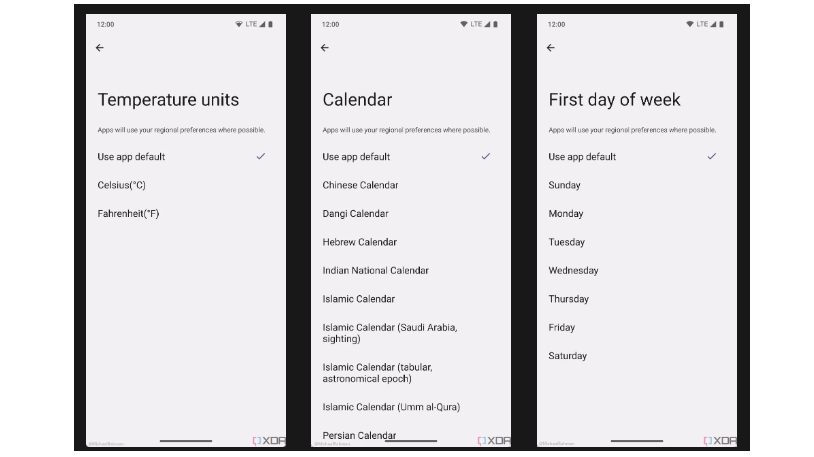
One other feature of Android 14 is the ability to set your preferred temperature units, first day of the week, calendar type, and number system, which will then be applied across apps.
Health Connect
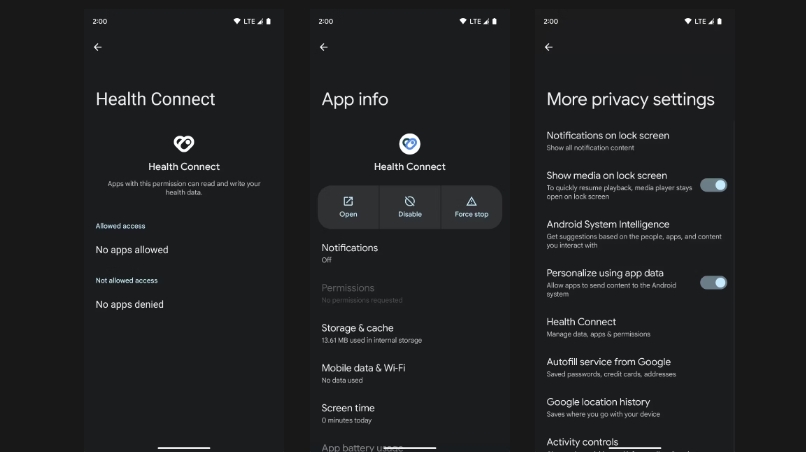
Health Connect lets you sync data between your health and fitness apps and devices, so that you can potentially see all of this data in one place. It’s not a new app, but with Android 14 it’s been integrated into the platform, rather than being a separate app that you have to download.
App cloning
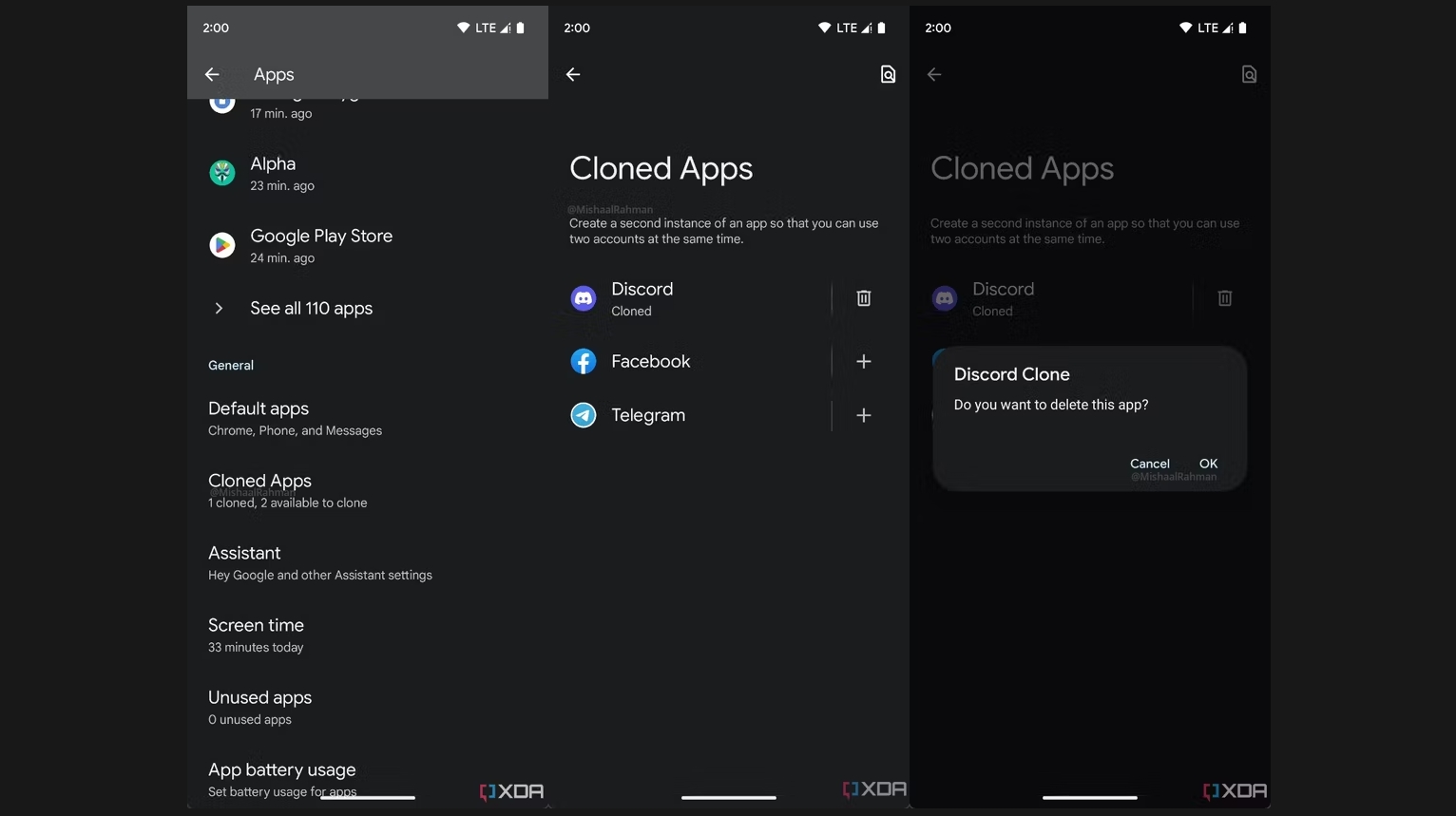
One feature of Android 14 is known as ‘cloned apps’, and allows you to create a second instance of an app, so you can be logged in with two different accounts at the same time, for apps that don’t natively support multiple accounts.
We’ve seen this sort of feature before from some phone makers, but this is the first time it’s been a part of stock Android.
Font scaling
Android 14 includes font scaling up to 200% to help low-vision users. It’s cleverly designed too, as it uses a non-linear scaling curve, which means that while the smallest elements might grow by 200%, already large text won’t increase by the same amount, so that it won’t get impractically large.
View apps installed in the background
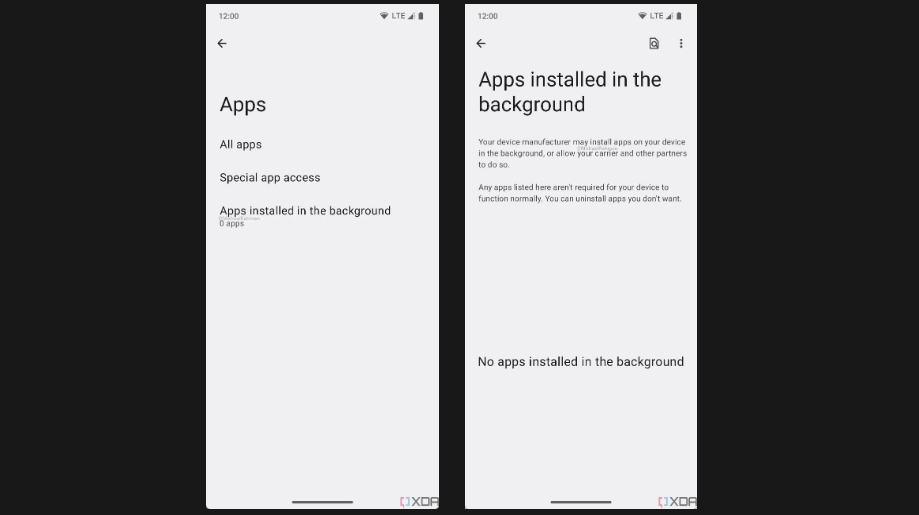
Your phone likely won’t just include the apps you installed on it. There will also be pre-installed apps, much of which could be considered bloatware.
Worse, manufacturers and carriers will sometimes add apps to your phone at a later date, without your permission or knowledge, and of course viruses and the like could also add apps to your phone without your knowledge.
These are described as apps that were installed in the background, and with Android 14, you can view a list of all of these, so you can keep on top of them.
Magic Compose
One of Android 14's generative AI features is the ability to use AI to get suggested responses to messages in Messages by Google. If you type out a response, Magic Compose will then suggest alternative phrasings, with different categories that you can choose from, such as 'chill', or 'lyrical'.
Emoji wallpapers

If you're a Pixel user, then Android 14 will let you create a wallpaper for your phone using a combination of up to 14 different emojis of your choice, along with a choice of patterns and colors. You can see some examples of this from XDA Developers above.
Generative AI wallpapers

Sticking with the theme of wallpapers, with Android 14 you can use AI to generate bespoke wallpapers for you depending on the prompts you submit.
Auto-confirm PINs
A small feature is the ability to have correct PINs automatically confirmed.
What that means is that when you enter the final digit of a PIN, it would automatically accept it, rather than you having to press 'OK' or 'Confirm' or the like. This feature will only work for PINs of at least six digits.
Improved data sharing details

With Android 14, you can see at a glance exactly what data permissions an app has, including what data it can access and why it might need that access, so you can make a more informed decisions of which permissions to grant.
Help for the hard of hearing
One new accessibility feature aimed at those with hearing impairments, but which might appeal to other people too, is the ability to use the camera flash as a notification light.
James is a freelance phones, tablets and wearables writer and sub-editor at TechRadar. He has a love for everything ‘smart’, from watches to lights, and can often be found arguing with AI assistants or drowning in the latest apps. James also contributes to 3G.co.uk, 4G.co.uk and 5G.co.uk and has written for T3, Digital Camera World, Clarity Media and others, with work on the web, in print and on TV.
- Axel MetzPhones Editor